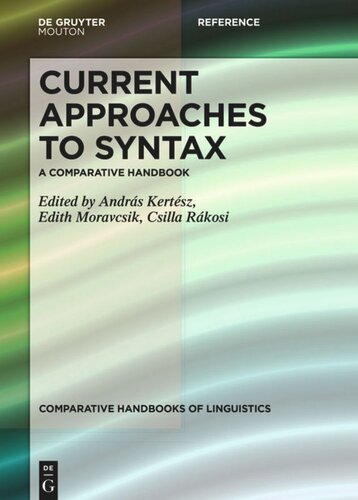

Most ebook files are in PDF format, so you can easily read them using various software such as Foxit Reader or directly on the Google Chrome browser.
Some ebook files are released by publishers in other formats such as .awz, .mobi, .epub, .fb2, etc. You may need to install specific software to read these formats on mobile/PC, such as Calibre.
Please read the tutorial at this link: https://ebookbell.com/faq
We offer FREE conversion to the popular formats you request; however, this may take some time. Therefore, right after payment, please email us, and we will try to provide the service as quickly as possible.
For some exceptional file formats or broken links (if any), please refrain from opening any disputes. Instead, email us first, and we will try to assist within a maximum of 6 hours.
EbookBell Team

5.0
90 reviewsEven though the range of phenomena syntactic theories intend to account for is basically the same, the large number of current approaches to syntax shows how differently these phenomena can be interpreted, described, and explained. The goal of the volume is to probe into the question of how exactly these frameworks differ and what if anything they have in common.
Descriptions of a sample of current approaches to syntax are presented by their major practitioners (Part I) followed by their metatheoretical underpinnings (Part II). Given that the goal is to facilitate a systematic comparison among the approaches, a checklist of issues was given to the contributors to address. The main headings are Data, Goals, Descriptive Tools, and Criteria for Evaluation. The chapters are structured uniformly allowing an item-by-item survey across the frameworks. The introduction lays out the parameters along which syntactic frameworks must be the same and how they may differ and a final paper draws some conclusions about similarities and differences.
The volume is of interest to descriptive linguists, theoreticians of grammar, philosophers of science, and studies of the cognitive science of science.